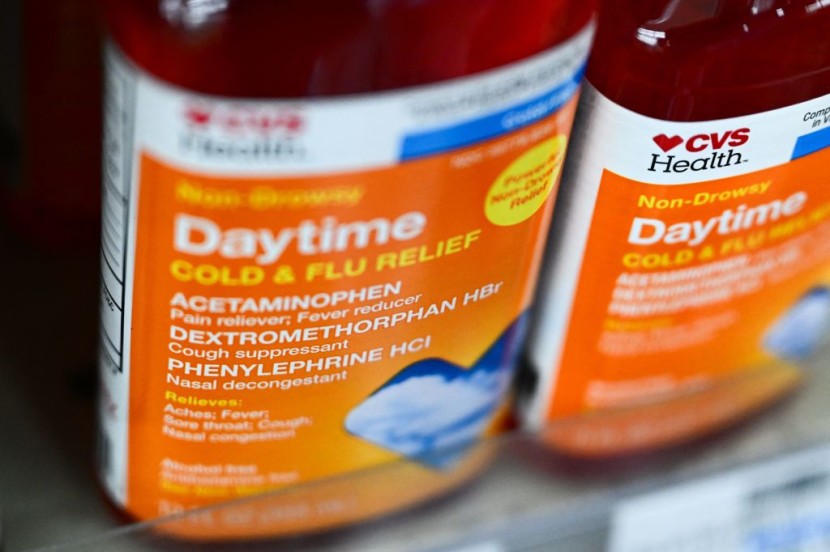
Weeks after Food and Drug Administration experts determined that a common component in cold and cough treatments was useless, pharmacy company CVS Health said that it is removing some of its most well-known products from store shelves.
According to CVS, its pharmacy shops would no longer carry goods with phenylephrine as the only active component.
In a statement, CVS stated that it is dedicated to abiding by all relevant rules and regulations and is aware of the FDA Advisory Committee's view on oral phenylephrine. It is willingly stopping the decongestants.
Dayquil, Mucinex Sinus-Max, Sudafed PE Sinus Congestion, Theraflu, and other well-known drugs available at pharmacies all across the United States include oral phenylephrine.
According to the FDA, phenylephrine-containing decongestants generate yearly sales of around $1.8 billion.
It is unknown if additional pharmacies would adopt this policy and discontinue selling medications with phenylephrine as the sole active component. Walgreens told CBS MoneyWatch that it "follows FDA regulations," but declined to say if it would cease selling the drugs.
Read also: Walgreens Pharmacy Staffers Walk Out Over Work Conditions
The Ineffectiveness of Oral Phenylephrine
Oral phenylephrine, a popular over-the-counter decongestant, has long been a go-to remedy for individuals seeking relief from nasal congestion and cold symptoms.
However, its effectiveness has come under scrutiny in recent years, with growing evidence suggesting that it may not be as effective as previously believed.
One of the primary concerns surrounding oral phenylephrine is its limited efficacy compared to other decongestants, such as pseudoephedrine.
Studies have shown that oral phenylephrine is often less effective at alleviating nasal congestion and related symptoms. The reason for this diminished effectiveness is attributed to the way the body metabolizes phenylephrine when taken orally.
Unlike pseudoephedrine, which is a more potent decongestant, phenylephrine's bioavailability is significantly lower when ingested, reducing its overall impact on congestion relief.
Another factor contributing to the ineffectiveness of oral phenylephrine is the potential for variation in individual responses. People can have differing levels of sensitivity to the drug, leading to inconsistent results in relieving nasal congestion.
This variability makes it challenging for individuals to predict how well oral phenylephrine will work for them, further undermining its reliability as a decongestant.
Furthermore, the short duration of action of oral phenylephrine is another limitation. The relief it provides is often short-lived, necessitating frequent dosing throughout the day to maintain the desired effect.
This can be inconvenient and may result in fluctuations in its efficacy, as it requires strict adherence to dosing schedules.
Additionally, concerns have been raised about the potential for side effects associated with oral phenylephrine, including increased heart rate, increased blood pressure, and the risk of adverse events in certain populations, such as individuals with cardiovascular conditions.
This has led some healthcare professionals to advise against its use in specific patient groups.
In light of these concerns, many healthcare providers and experts recommend exploring alternative decongestant options, such as nasal sprays, steam inhalation, or saline nasal rinses, which can provide more direct and effective relief from nasal congestion. It's important for individuals to consult with a healthcare professional to determine the most suitable and effective treatment for their specific needs, as oral phenylephrine may not be the best choice for everyone seeking relief from congestion and cold symptoms.
Related article: Rite Aid: Major US Pharmacy Files Bankruptcy, Could Close 2k Stores Amid Opioid Lawsuits








